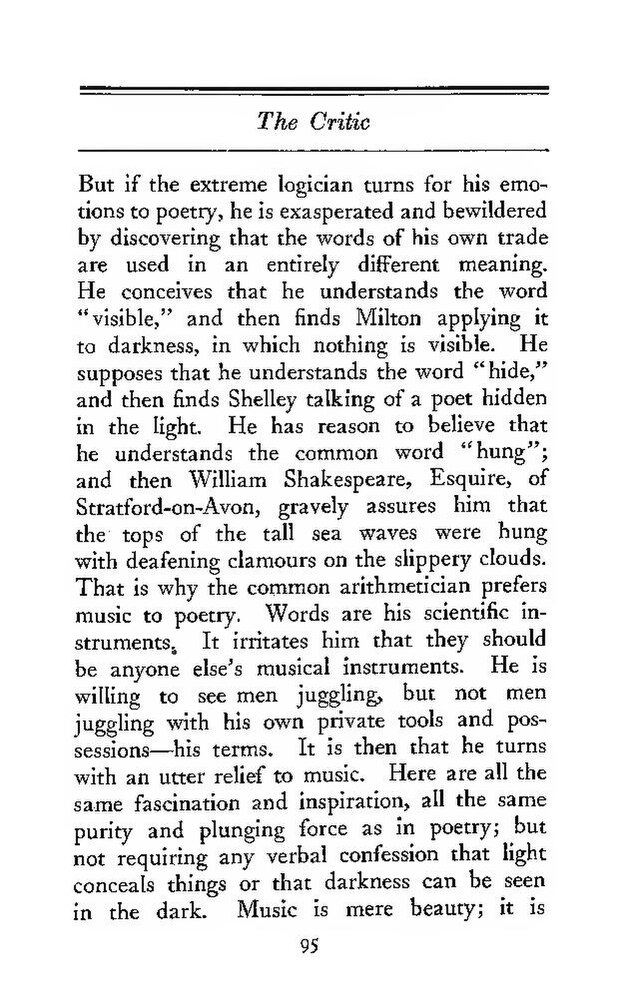But if the extreme logician turns for his emotions to poetry, he is exasperated and bewildered by discovering that the words of his own trade are used in an entirely different meaning. He conceives that he understands the word "visible," and then finds Milton applying it to darkness, in which nothing is visible. He supposes that he understands the word "hide," and then finds Shelley talking of a poet hidden in the light. He has reason to believe that he understands the common word "hung"; and then William Shakespeare, Esquire, of Stratford-on-Avon, gravely assures him that the tops of the tall sea waves were hung with deafening clamours on the slippery clouds. That is why the common arithmetician prefers music to poetry. Words are his scientific instruments. It irritates him that they should be anyone else's musical instruments. He is willing to see men juggling, but not men juggling with his own private tools and possessions—his terms. It is then that he turns with an utter relief to music. Here are all the same fascination and inspiration, all the same purity and plunging force as in poetry; but not requiring any verbal confession that light conceals things or that darkness can be seen in the dark. Music is mere beauty; it is
95
